 Your new post is loading...
 Your new post is loading...

|
Scooped by
Mel Riddile
January 17, 2014 1:50 PM
|
These Action Briefs for school leaders are a starting point, designed to increase awareness of the standards, create a sense of urgency around their implementation, and provide these stakeholders — who are faced with dramatically increased expectations in the context of fewer resources — with a deeper understanding of the standards and their role in implementing the standards. Achieve, in partnership with College Summit, the National Association of Secondary School Principals, and the National Association of Elementary School Principals, released this with support from MetLife Foundation.

|
Scooped by
Mel Riddile
October 17, 2016 5:03 PM
|
In these audio clips, the author and retired professor discusses how background knowledge affects reading comprehension, why he thinks the common core's focus on reading complex texts is useless, and what education policymakers can learn from France.

|
Scooped by
Mel Riddile
October 16, 2016 3:23 PM
|
Providing feedback is an art and as we continue to propel our students into independence, we need to carefully monitor where they are providing them the necessary steps like training wheels until they are ready to ride alone. Perhaps it's just the new buzz word of the moment or maybe it's the missing piece in how we make feedback more meaningful, but actionable feedback means not only identifying what needs improvement, but also offering a plan of action to make the necessary improvement possible.It's easy enough to tell a person what's wrong with their writing or a math set but it is a whole other thing to help them understand how to tackle the challenge and start to improve it. This is clearly more important than naming the problem.Too often in education we spend time naming problems rather solving them. We talk about what's wrong at length instead of living in solutions.Actionable feedback is where the solutions begin.There are lots of different ways of providing actionable feedback and depending on the age of the students and the content you're addressing, just make sure you're focusing on the how.

|
Scooped by
Mel Riddile
October 15, 2016 5:45 PM
|
Marc Tucker explores why educational technology has failed to deliver on its promises of raising student achievement. When I began my study of instructional technology in the early 1980s, I was convinced that digital technology could unleash an enormous improvement in learning for very large numbers of school children all over the world. I still think that. But that will not happen unless countries and states make very large investments in their teachers. Not, I might add, to teach them how to use technology. That will get us nowhere. Their lack of knowledge about how to use technology has never been the problem. It is their lack of deep knowledge about the doors that the technology can open that is the problem. Teachers will help young children develop an intuitive feel for the connections among algebraic formulas, abstract geometric forms and the rhythms of everyday life when teachers themselves understand those connections and see them in everyday life and marvel at them for their beauty and elegance. They will teach their students about the ubiquity of dynamic systems and the nature of their control when they themselves not only understand such systems and how they work but understand, too, the crucial role they play in the fabric of the lives we lead. Then they will be thinking like engineers, and that will enable them to help their students think like engineers. What I am describing is a very different kind of education—I am speaking of education, not training—than the kind that teachers ordinarily get. But this sort of change in their education is hardly all that is required. The whole curriculum must be rethought. And the standards to which that curriculum is set. And the way student performance is measured. And the things for which teachers will be held accountable. Only then will teachers be both able and willing to look at a brilliantly conceived piece of software that enables students to play with complex systems as a vital aid and not a distraction.

|
Scooped by
Mel Riddile
August 22, 2016 6:27 PM
|

|
Rescooped by
Mel Riddile
from Common Core Controversy
February 12, 2016 2:21 PM
|
A new study found that teachers are mainly relying on homegrown instructional materials, created either by themselves or their district colleagues, to meet the Common Core State Standards.
Via Patrice Bucci

|
Rescooped by
Mel Riddile
from Common Core Online
December 18, 2015 7:18 AM
|
Wondering what to do with your individual PARCC score reports? You're invited to join outstanding teachers nationwide to dig into tools and teacher-tested strategies to help you elevate the PARCC conversation in your school community, classrooms and teams. By the end of our session, you will have:
Via Darren Burris

|
Scooped by
Mel Riddile
December 9, 2015 12:15 PM
|
The Common Core standards raised expectations for students across the board. This fall, results are coming in for the first time, and in many places, they've been disappointing. John Tulenko of Education Week reports.

|
Scooped by
Mel Riddile
November 20, 2015 8:11 AM
|
Common core based lesson plans and math tasks and ways to instill positive math beliefs. Easy to use in classrooms or home by teachers and parents.

|
Scooped by
Mel Riddile
November 13, 2015 1:30 PM
|
A new study looking at the relationship between the National Assessment of Educational Progress and the Common Core State Standards for mathematics finds that the two have "reasonable" overlap, but that the national test falls short on assessing some of the common standards.
The study, commissioned by the NAEP Validity Studies Panel, an independent panel run by the American Institutes for Research, was published in advance of this week's release of the 2015 NAEP reading and math scores for 4th and 8th grade students. NAEP is administered to a nationally representative sample of students about every two years.
The NAEP test was not designed to be aligned with any particular set of standards—it is meant to be used as a barometer of student achievement across the United States.

|
Scooped by
Mel Riddile
October 14, 2015 10:29 AM
|
The standards that naysayers love to call “Obamacore” have become the reality for roughly 40 million students.

|
Rescooped by
Mel Riddile
from Common Core Online
October 13, 2015 9:06 AM
|
New SBAC test results are in. Use this free tool to understand your child’s scores and see how your child is meeting the Common Core standards.
Via Darren Burris

|
Scooped by
Mel Riddile
October 4, 2015 11:47 AM
|
Advocates hoped to be able to compare student performance across state lines, but that’s still hard to do.
|

|
Scooped by
Mel Riddile
October 17, 2016 5:06 PM
|
Adolescent-brain science findings suggest four things that middle and high school teachers should stop doing, writes psychologist Thomas Armstrong. Findings from adolescent-brain research also suggest a number of things that educators should stop doing so much of at the middle school and high school levels. For example:• Classroom teaching that focuses largely on delivering content through lectures and textbooks fails to engage the emotional brain and leaves unchanged those prefrontal regions that are important in metacognition.• Public posting of grades and test scores (a practice which in this data-driven world appears to be increasing) humiliates and shames students in front of their highly valued peers.• Locking students into a set academic college-bound program of courses takes away their ability to make decisions about what most interests them (a process that integrates the limbic system's motivational verve with the prefrontal cortex's decisionmaking capacity).

|
Scooped by
Mel Riddile
October 17, 2016 5:00 PM
|
Graduation rates topped 83 percent in the 2014-15 school year. High school graduation rates inched up for the fourth year in a row, by nearly one percentage point to 83.2 percent in the 2014-15 school year, the Obama administraton announced Monday. And while there are still significant graduation gaps between black, Hispanic, and Native American students and their white and Asian peers, those gaps are slowly closing.Graduation rates have now risen for students overall from 79 percent in the 2010-11 school year—the first year all states used the same method to calculate graduation rates. But over that same period graduation rates for black students rose even faster, by 7.6 percent. And graduation rates for Hispanic students grew by 6.8 percent. What's more, the rates for English-language learners, students in special education, and disadvantaged students also grew faster than for students overall.

|
Scooped by
Mel Riddile
October 16, 2016 3:07 PM
|
If instructional coaching is beneficial to teachers, shouldn't leadership coaching benefical to principals? Why aren't more principals doing it? What about principals?If principals believe that teachers can benefit from high quality coaching, doesn't that mean that principals can as well? I wonder how many would engage in that type of professional development? Many times the school leader believes that they are supposed to know it all, which is quite possibly why they moved to the principalship. And some principals may believe coaching is for teaching and not for them, which is an interesting dilemma when it comes to who values coaching and why. If coaches are good for teachers, shouldn't coaching be valuable for leaders too?

|
Scooped by
Mel Riddile
October 14, 2016 11:38 AM
|
Educators have the odd habit of taking simple ideas and making them inexplicably complex. Standards based learning is one of them.

|
Rescooped by
Mel Riddile
from Digital Delights for Learners
August 22, 2016 3:01 PM
|
The tech team in Littleton, Colorado is trying to build self-sufficiency in students by compiling digital tools for reading and writing that students can choose
Via Ana Cristina Pratas

|
Scooped by
Mel Riddile
December 20, 2015 3:16 PM
|
New data shows about half of Illinois high school graduates going on to the state's community colleges need remediation in at least one subject.

|
Scooped by
Mel Riddile
December 12, 2015 1:27 PM
|
The amount of non-fiction read by students in grades 1-12 has steadily increased since the adoption of new learning standards introduced in the Common Core. Yet students — especially those in high school — don't read to the level of difficulty they should and fall "far short" of what may be required for college and career preparedness. At the same time, students who begin the school year behind their peers can make up for lost time with the right standards in place.

|
Scooped by
Mel Riddile
November 27, 2015 11:21 AM
|
If there are exceptions to Malcolm Gladwell’s rule, writing is surely one of them. Even after 10,000 hours, the process can still feel tedious, frustrating and lonely.Practice may not make perfect, but feedback and repetition can help students be more competent at writing. At least, that’s the hope

|
Scooped by
Mel Riddile
November 16, 2015 4:06 PM
|
The 2014-15 school year marked a big change for many states because they switched to tests that for the first time reflect the Common Core State Standards.

|
Scooped by
Mel Riddile
November 8, 2015 5:07 PM
|

|
Scooped by
Mel Riddile
October 13, 2015 12:13 PM
|
The Arkansas decision doubled the number of Algebra I students considered proficient.

|
Scooped by
Mel Riddile
October 4, 2015 2:19 PM
|
Steven Singer, who teaches in Pennsylvania, explains the planned insanity behing standardized testing, rigged for failure. He likens the situation to a video game that he played with his friend as ...

|
Scooped by
Mel Riddile
October 3, 2015 5:08 PM
|
The Common Core State Standards arose from a simple idea: that creating one set of challenging academic expectations for all students would improve achievement and college readiness.
|






 Your new post is loading...
Your new post is loading...




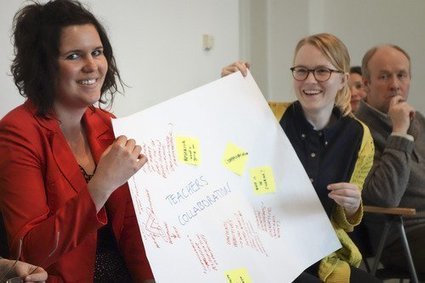


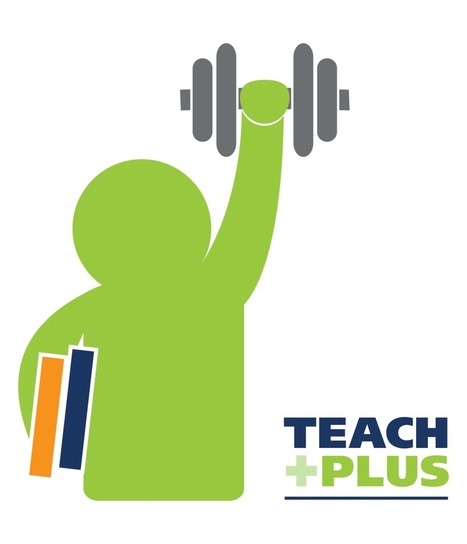


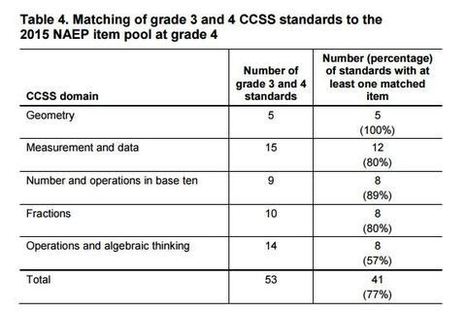
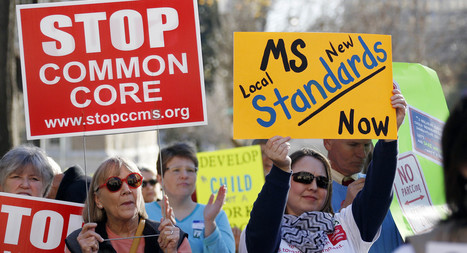


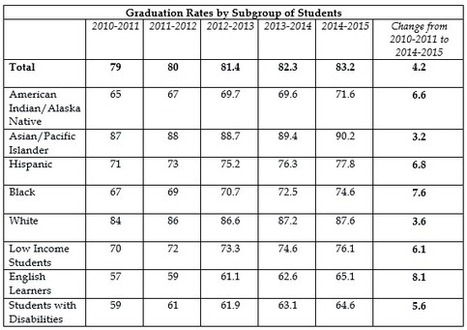




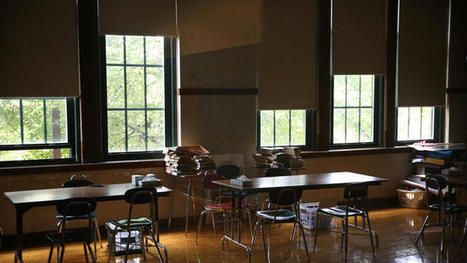


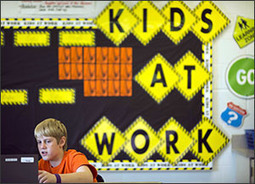





Local, State, Federal